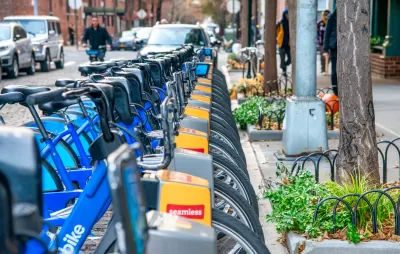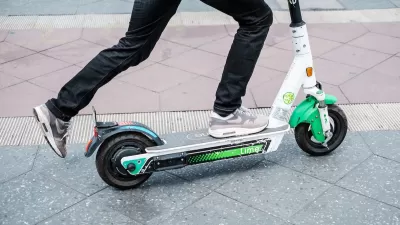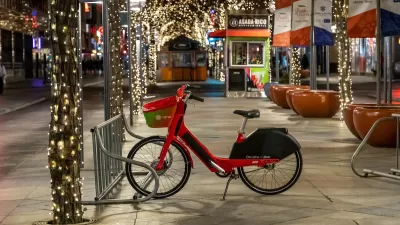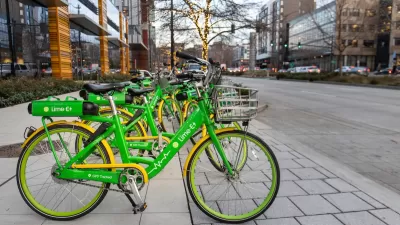The growing popularity of shared mobility modes, many small and highly efficient, could soon begin having a significant impact on urban transportation patterns.

According to a brief in Smart Cities Dive by Dan Zukowski, “In a December survey of more than 30,000 mobility users in 15 countries, the consulting firm found that over 25% of respondents living in urban areas said they were considering getting rid of their private vehicles in favor of other transportation options.”
This signals the growing mainstream popularity of shared mobility such as ride hailing, bike share, and shared e-scooters. “ In 2021, shared micromobility users racked up 121 million trips on bikes and scooters in the U.S., according to data from the National Association of City Transportation Officials.”
Zukowski points out that cities will need to adapt to these new mode shares, quoting Kersten Heineke, co-leader of the McKinsey Center for Future Mobility: “If we think about sizeable fleets of shared vehicles in cities, we will need to either repurpose parking garages or create new spots, new spaces where these vehicles can be cleaned, maintained, parked whenever they’re not in operation.” Bike and scooter riders will need safe, protected micromobility lanes to get around cities and connect to transit and urban amenities.
In its early days, the rapid introduction of e-scooters with little regulation led to conflict with pedestrians and cluttered sidewalks; ride-hailing vehicles block curb space while waiting for customers and have led cities to establish designated loading zones; and autonomous vehicles are causing traffic jams and interfering with transit and emergency vehicles in San Francisco and elsewhere.
FULL STORY: Growing shared mobility use likely to disrupt urban transportation, private car ownership

Planetizen Federal Action Tracker
A weekly monitor of how Trump’s orders and actions are impacting planners and planning in America.

Congressman Proposes Bill to Rename DC Metro “Trump Train”
The Make Autorail Great Again Act would withhold federal funding to the system until the Washington Metropolitan Area Transit Authority (WMATA), rebrands as the Washington Metropolitan Authority for Greater Access (WMAGA).

The Simple Legislative Tool Transforming Vacant Downtowns
In California, Michigan and Georgia, an easy win is bringing dollars — and delight — back to city centers.

The Small South Asian Republic Going all in on EVs
Thanks to one simple policy change less than five years ago, 65% of new cars in this Himalayan country are now electric.

DC Backpedals on Bike Lane Protection, Swaps Barriers for Paint
Citing aesthetic concerns, the city is removing the concrete barriers and flexposts that once separated Arizona Avenue cyclists from motor vehicles.

In These Cities, Most New Housing is Under 441 Square Feet
With loosened restrictions on “micro-housing,” tiny units now make up as much as 66% of newly constructed housing.
Urban Design for Planners 1: Software Tools
This six-course series explores essential urban design concepts using open source software and equips planners with the tools they need to participate fully in the urban design process.
Planning for Universal Design
Learn the tools for implementing Universal Design in planning regulations.
Smith Gee Studio
City of Charlotte
City of Camden Redevelopment Agency
City of Astoria
Transportation Research & Education Center (TREC) at Portland State University
US High Speed Rail Association
City of Camden Redevelopment Agency
Municipality of Princeton (NJ)





























